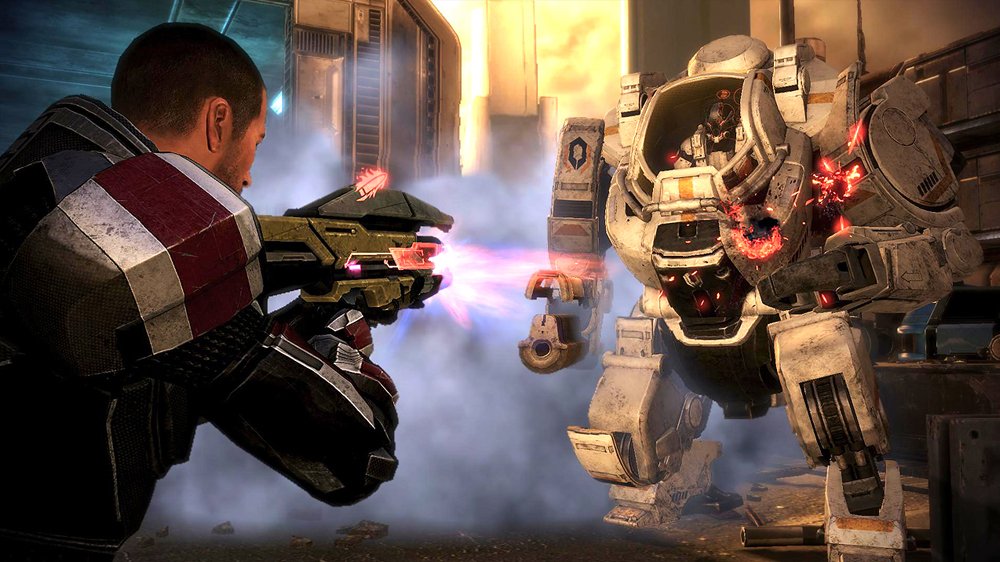Why BioWare Shouldn't Change Mass Effect 3's Ending
The following article contains no spoilers.
The petition calling for a new ending to Mass Effect 3 currently has 37,714 votes. BioWare should ignore every single one of them.
As any work of art, Mass Effect 3 should be discussed, dissected, and critiqued. It doesn't have to be loved. It doesn't even have to be liked. As paying consumers, gamers have the right to be dissatisfied with a game, its content, or its ending. They are free to comment, rant, or rave. They are even free to start a petition. But none of this requires BioWare to listen.
While this petition only represents the feelings and voices of a very small subset of the gaming community, it is the second time in a month that BioWare has been the subject of large-scale ire.
Imagine we lived in a world where artists regularly changed their art based on audience demands. Imagine Monet repainting Water Lilies in black and white because people objected to color. Imagine Salman Rushdie trashing The Satanic Verses because people objected to its implications. The very idea of allowing any work of art to be changed, edited, reshaped, reworked, deleted, or destroyed because someone, somewhere, didn't like it would render all art meaningless. Art is the creative expression of an artist or a group of artists. It's not a free-for-all exercise in democratic rights.
There are plenty of examples, both in the games industry and outside of it, of fan communities demanding creators change a piece of art for any number of reasons. Making these demands is nothing new. But that does not absolve those that do it. Gamers are consumers, and Mass Effect 3 is a product. Gamers are audiences, and Mass Effect 3 is a piece of art. The two are separated by the process of creation. Mass Effect 3, despite the range of choice it allows players in creating a personal experience, is a preconstructed entity. Every single pixel in the game is owned by BioWare: gamers play the game that was made for them. They can choose to play it how they want, but they do not own those choices.
Some people have argued that in Mass Effect 3, BioWare has delivered something different from what it promised. This is irrelevant. In its role as both an art object and a consumer product, Mass Effect 3 remains the property of its maker. As a final product, it is the expression of those who created it, and its sole objective is to be consumed--not re-created--by its audience. Apart from the times that BioWare asked the community for its thoughts, no one but the development team was involved in creating the game.
Art does not side exclusively with the artist, nor does it side exclusively with the audience. A work of art is brought into being by the creation of a two-way relationship between both entities. A video game like Mass Effect 3 cannot be fully realized until it is played by an audience that must be allowed to react and respond to the work.
But the work of art is done; it is finished. Altering or deleting a work as a direct result of audience reaction/demand fractures the relationship between artist and audience, and renders the original work meaningless. If BioWare does change the end of Mass Effect 3 to mollify a handful of goading voices, the game itself would no longer be the expression of its original creators. It would cease to be art.
[CORRECTION: The article originally contained the following statement: "It cannot be altered or deleted. Doing so would fracture the relationship between an artist and the audience, and it would render the original work meaningless." Upon reflection, this statement was misleading and has been altered to correctly reflect the writer's original intention. GameSpot regrets the error.]
Got a news tip or want to contact us directly? Email news@gamespot.com

Join the conversation